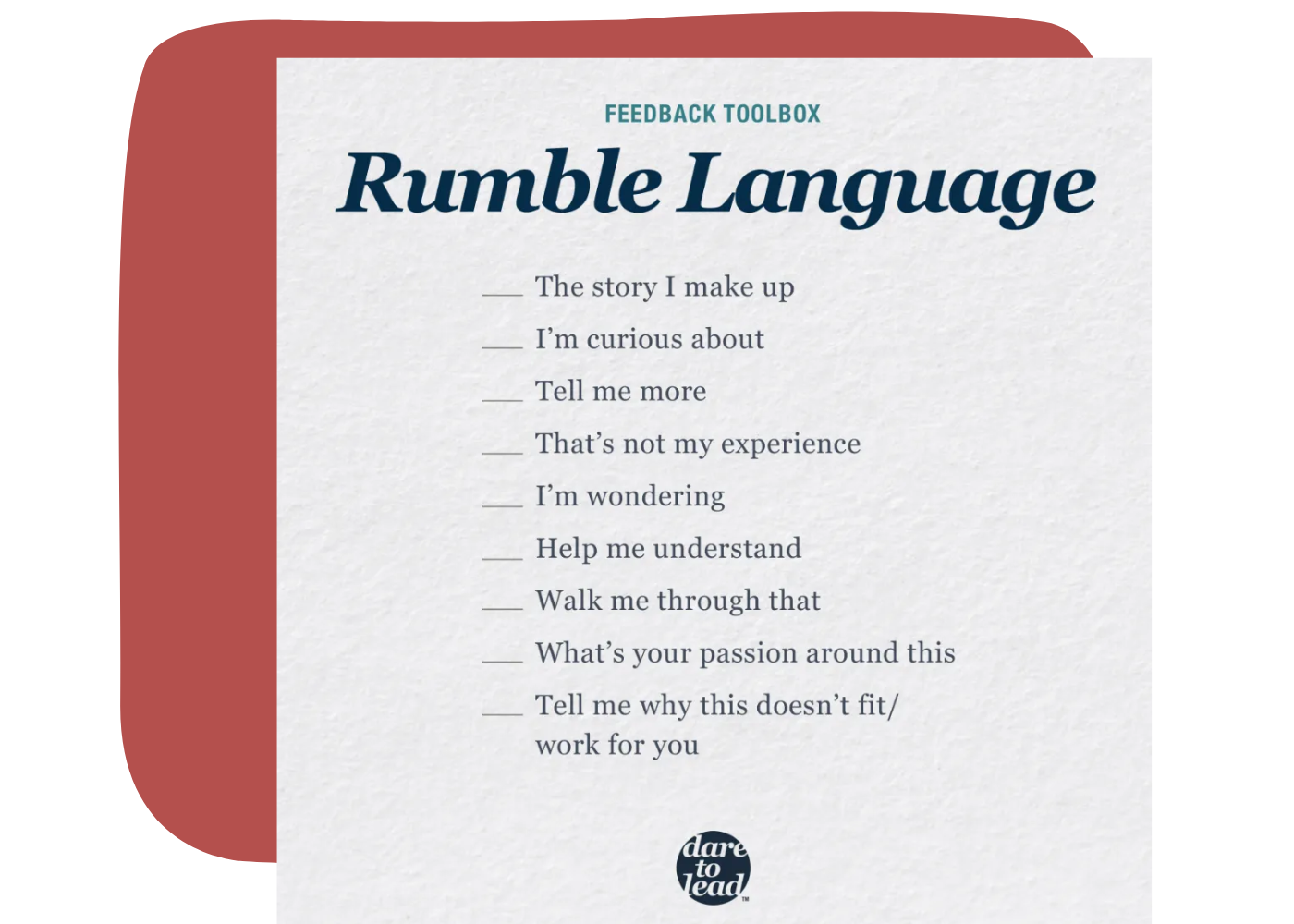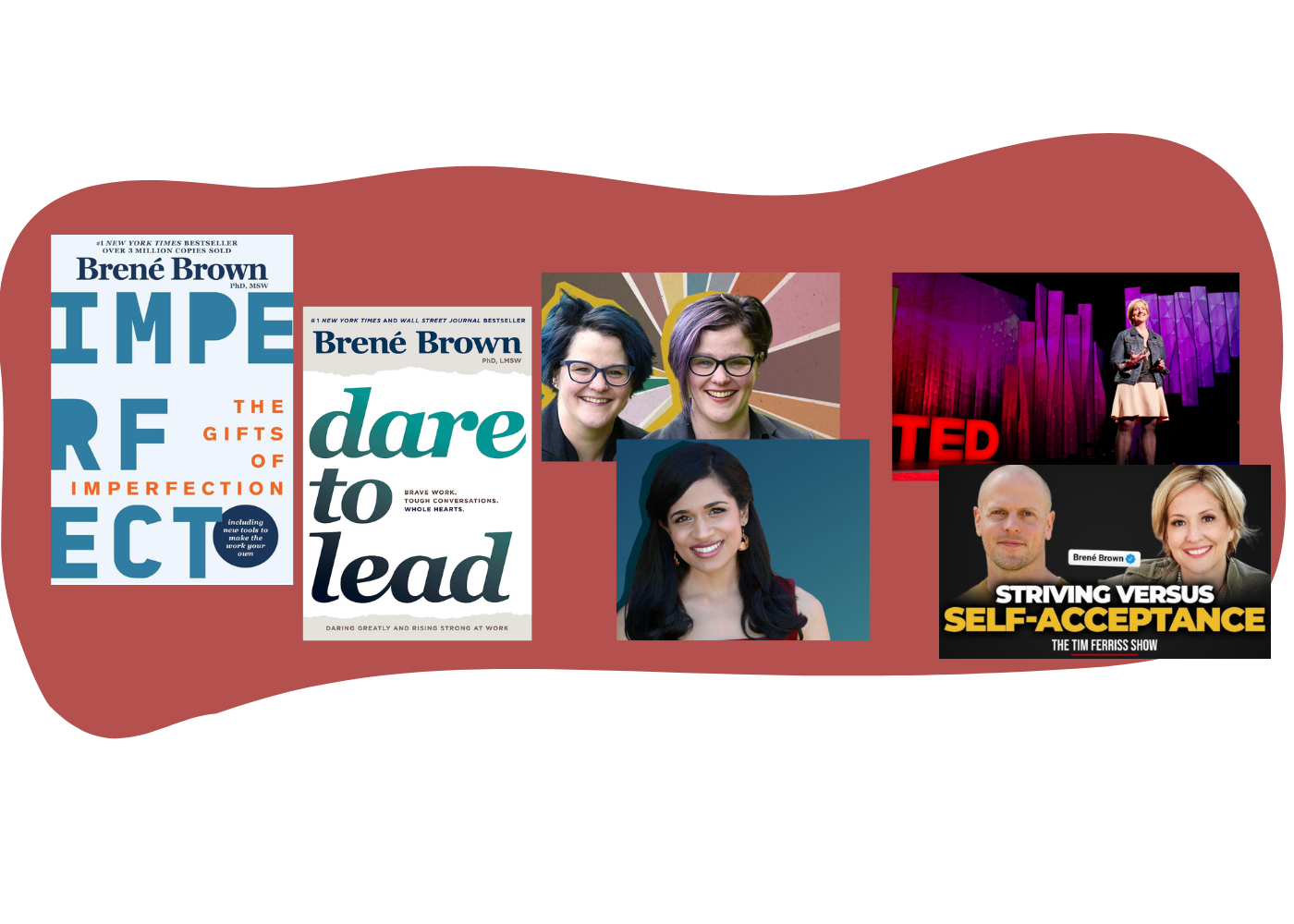A monthly deep dive into resources for cultivating greater wholeheartedness.
Hello again! Welcome back to another rendition of the Resource Roundup. This month, we’re talking vulnerability. What is it really? How can we grow in it? Why is it useful? What resources are out there?
Let’s find out.
A few weeks ago, I was chatting with a friend when I offhandedly dropped a Brene Brown quote into our conversation.
“Wow,” she responded. “That’s really good. Did you come up with that?”
I laughed and said, “no of course not, that’s Brene Brown.”
She looked at me puzzled, "who’s that?" she asked.
I stared at her, mouth agape. "You've never heard of Brene Brown?! And we’ve been friends for how long?"
I couldn't help but take it personally —spending time with me almost guarantees that you'll hear a Brene Brown quote sooner or later. Not only because she’s my girl, but because her research on shame, courage and leadership has profoundly impacted my life in countless ways.
I realize I’m coming across as a super fan (and I am) but what I love about her work is the honesty, approachability and practicality. Through her various books, podcasts, and resources, she distills complex ideas into actionable insights. Specifically, with her work on vulnerability.
As we continue to explore what it means to deepen our relationship with God, ourselves and others, vulnerability is key. Whether it is learning how to confront others, overcoming shame or growing in greater self-awareness, vulnerability is the pathway forward.
But what is it exactly?
Vulnerability can be defined as,
“Uncertainty, risk and emotional exposure. It is not a weakness, but the most accurate measure of courage.” (Braving the Wilderness)
In her Daring Classrooms Hub, Brene breaks this down further:
Choosing to be vulnerable is one of the bravest things we can do, but it also requires consistent practice and intentionality (especially when it’s uncomfortable).
Confrontation often becomes the best way to strengthen this skill.
If we want to deepen our relationships over time, learning to confront things with love, compassion, and curiosity is essential. Or as Brene says, we have to learn to love “the rumble.”
“There is a deep human truth that is rarely acknowledged: Courage and fear are not mutually exclusive. Most of us feel brave and afraid at the exact same time. We feel vulnerable. Sometimes all day long. During those moments, when we’re pulled between our fear and our call to courage, we need shared language, skills, tools, and daily practices that can support us through the rumble.
A rumble is a discussion, conversation, or meeting defined by a commitment to lean into vulnerability, to stay curious and generous, to stick with the messy middle of problem identification and solving, to take a break and circle back when necessary, to be fearless in owning our parts, and, as psychologist Harriet Lerner teaches, to listen with the same passion with which we want to be heard. More than anything else, when someone says, “Let’s rumble,” it cues me to show up with an open heart and mind so we can serve the work and each other, not our egos.” (Dare To Lead)
Here are nine ways we can start a tough conversation (or rumble):
Oftentimes, the hardest part of confrontation is just beginning. How do we start the conversation without triggering defensiveness or causing the other person to shut down? These nine phrases can help. They help set the tone and give us a shared language, increasing the chance that both parties feel understood.
We have to intentionally risk emotional exposure, fully aware it may backfire, yet understanding that this is the path to greater relational intimacy.
Using phrases like "tell me more" or "the story I’m telling myself right now is..." have been a game changer for me. They've sparked some of the most honest and vulnerable conversations I've had in recent years.
My hope is that as you explore Brene Brown’s work, you'll feel more equipped and encouraged in your own journey towards greater relational intimacy.
Here are some highlights that I would recommend starting with:
Let me know if any of her work resonates with you. I can’t wait to continue on this journey together.
Create some space and ask yourself these questions:
Growing up, what messages did you receive about vulnerability? Where did those lessons come from?
Can you recall a time when your vulnerability wasn’t well-received? What do you wish had gone differently?
Think of a time when your vulnerability was met with understanding. What made that experience positive for you?
How do you feel about being vulnerable with God? When was the last time you were?
Is there a tough conversation you’ve been avoiding? Who is it with? What would it look like to be brave and vulnerable with them in the week ahead? Could any of these nine rumble phrases help get you started?
I love getting to hear from you. Feel free to message me or comment below.
Housekeeping
ℹ️ Read more about An Unraveling here.
⭐️ You can expect weekly posts delivered straight to your inbox on Sunday mornings when you subscribe.
💲 By upgrading to a paid subscription, you'll gain access to additional perks such as guest essays, interviews, and the Monthly Resource Roundup.
💌 I would love to hear from you! Use the comment feature at the bottom of this page or reply via email to start a conversation.
🗣 If somebody comes to mind as you read this, feel free to share!











